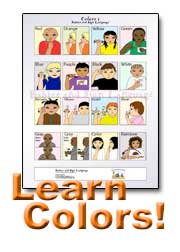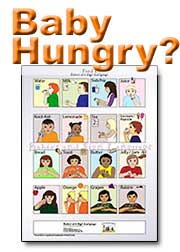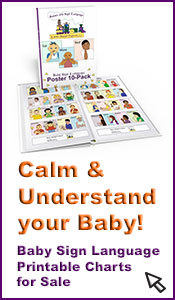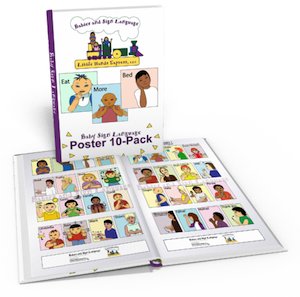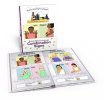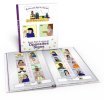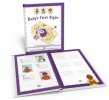Is Your Baby Fussy? Frustrated? Toddler need help calming?
 Some child experts think that growing up in our fast paced world could be a direct cause to children becoming easily frustrated. Things are not as simple as they were 40 years ago. With so many choices, activities, and technologies, its no wonder that young children can become frustrated with every-day things.
Some child experts think that growing up in our fast paced world could be a direct cause to children becoming easily frustrated. Things are not as simple as they were 40 years ago. With so many choices, activities, and technologies, its no wonder that young children can become frustrated with every-day things.
One of your goals as a parent is to help your child through any (or at least most) bumps in the road. Your baby or toddler may cry or throw tantrums to express frustration. Some causes may be:
- Loud noises
- Overwhelmingly busy environment
- Being denied something she wants
- Toys that are hard to handle or play with
- Inability to complete a task
- Not getting what s/he needs
- Having/Needing to do something s/he doesnt want to do
Here are some ways to help your child from getting frustrated and how to calm her down if she is upset:
- Create some quiet/down time. You can take Baby into a separate room and try to calm him or her down without distractions. If she is yelling or not, try using a soothing, low voice. If you scream or yell back, Baby will feed on this and only become more frustrated.
- Use a soothing tone of voice and facial expressions. If you deny her something she wants, you probably have a good reason for it. Explain in a calm and reasonable voice to Baby why she cant have what she wants. She may not understand the words, but your body language and tone of voice will be enough for her for now.
- Choose age-appropriate toys. Toys that prove to be difficult to use can be very frustrating. Hes ready to play, but it proves difficult! Perhaps the ball is too large to grip or perhaps he's not able to take the toy with him. Try putting yourself in Baby's position to see if a toy is potentially frustrating. Toys that are good for young children are usually thin and tube-like with small spheres on them. They are easy to grip and play with.
- Support and Encouragement. Baby may try to do something and unfortunately, fail. If s/he does, be there and give comfort! If it is something you can help your baby accomplish, by all means, do so! Your baby needs to feel that s/he had a success with the task. Remember to give praise once the task is completed, as well as when task is attempted. However, be sure not to try and take over - it is easy to do. Baby needs to feel he did most of the work.
- Check your mental list, and tick! Sometimes, you may not know what your child needs or wants. Your baby will express this by crying. Make a mental check-list of all the things she has gotten or still needs (food, burping, changing, etc). Start eliminating items from the list and you will probably happen upon what she needs. As for a toddler, she or he may be able to communicate with you what it is she needs. (Thanks to baby sign language, this gets easier, too!)
- Make mundane activities fun! Some young children loathe everyday things, like taking baths or riding in cars. These two activities are pretty much inevitable. There are things that you can do to make the activity more fun. Buying new toys and unveiling them at bath-time may distract her enough so she forgets she hates baths. Perhaps bringing her favorite DVD or CD in the car would reduce stress and anxiety of rides. If someone else is in the car with you two, they could try to entertain her.

Everyone gets frustrated from time to time, but most of the time we don't need to be! Using these solutions should give you and Baby confidence in each other and a greater peace of mind.


